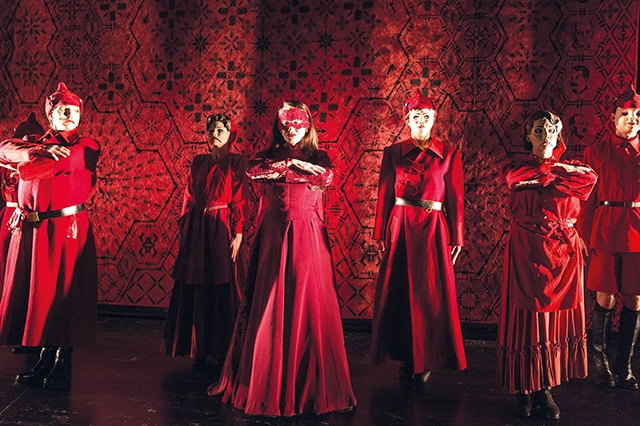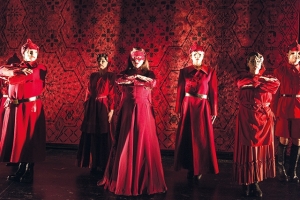Escape Theater-like Reality with the Tbilisi International Festival of Theater
The Tbilisi International Theater Festival was to be held for the 12th time in 2020. Actors from different parts of the world were to come and present a variety of performances for the Georgian audience. However, a lot of planned events have since turned into “should have beens” and “supposed to have happeneds” in the last year of the global pandemic. But when everything else fails, art is usually what comes to aid humanity. Having first delayed the event in hopes that they would still be able to physically implement it after some time, if the pandemic situation stabilized in the country, the organizers of the Tbilisi International Theater Festival finally decided to adapt to the existing reality and offer festival performances online, and it is running from December 15 to December 22.
“The program was ready in March, and we hoped the situation would be better by September. But it started to get worse in September, so we decided to do it anyway and do it remotely. Theater is neither an online art nor a modern dance: theater needs an audience; it is a form of live communication. The play you see online and the one you see live leave radically different impressions. The "presence" of the spectator where there is a creative act is essential. This greatly determines the fate of the play as well. But this time we had only one way to go.
“Holding a festival online can come from several desires: to comfort people and keep the continuation of the festival, and to encourage. Someday, many years in the future, when we look back at history, what we will see is that even in the conditions of this ‘war,’ theater and culture did not give up,” the festival organizers told Marketer.
The plays have come from the Georgian regions, from Poti and Telavi to Tbilisi, as well as from international stages: The UK, Germany, and Poland. The festival features everything from a modernization of Shakespeare’s Othello, to a revival of the unbearability of the twentieth century in a play based on Nino Kharatishvili’s work titled The Eighth Life (for Brilka).
On Thursday, Of Riders & Running Horses from the UK was streamed. It is a stirring and visceral dance event by Still House, created as a communal animation of urban spaces. Six female dancers and a live band conjure a new kind of old dance, an insistent rhythm, a joyful step into what it means to move together.
“The music is a rider and we are running horses,“ reads one of the reviews.
On Wednesday, Songs of Lear went online. “Songs of Lear seems to have already passed into legend, even though it’s only a work in progress,’’ writes The Guardian of Shakespeare’s masterpiece as recreated by the Polish theater Song of the Goat. The ensemble members have chosen crucial scenes from King Lear to weave a story out of gestures, words and music. Each song is a starting point for another 'dramatic poem'.
Some of the festival highlights that are still to come: Lisa’s Cake from the Tbilisi Movement Theater, The Damned (THE DEATH OF GODS) from Polish performers, and the final performance of this year’s festival, on December 22: The Pelican, from Tbilisi’s Theater on Atoneli.
The performances are available online for 24 hours and are free of charge on the festival’s webpage, allowing theater enthusiasts to escape a reality that is more and more becoming like a tragedy itself.
About the festival
The Tbilisi International Festival of Theater was founded by Tbilisi Municipality, on initiative of Tbilisi Mayor Gigi Ugulava in 2009. The festival runs every year at the end of September and beginning of October, and is one of the major events in the international life of Georgia. It is fast becoming one of the main performing arts events in the South Caucasus, attracting the attention of the best-known, creative, provocative and innovative theater productions from around the world, a meeting point of Europe and Asia, of many countries and places in one of the most beautiful, warm, unique theatrical and cultural Tbilisi, capital of Georgia.
By Nini Dakhundaridze












